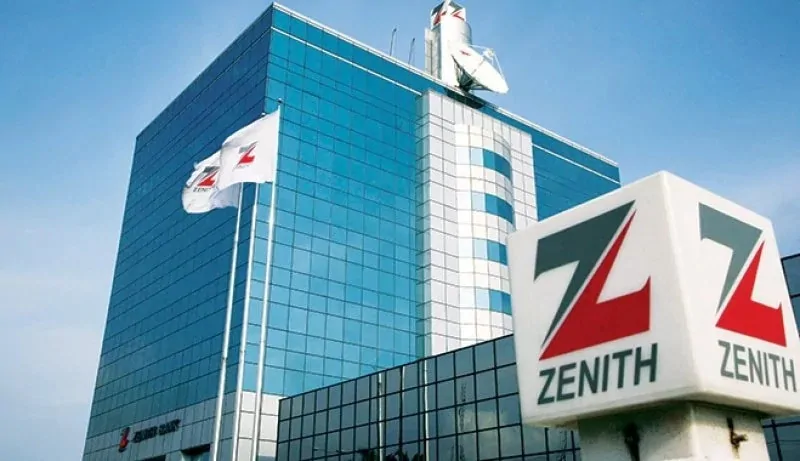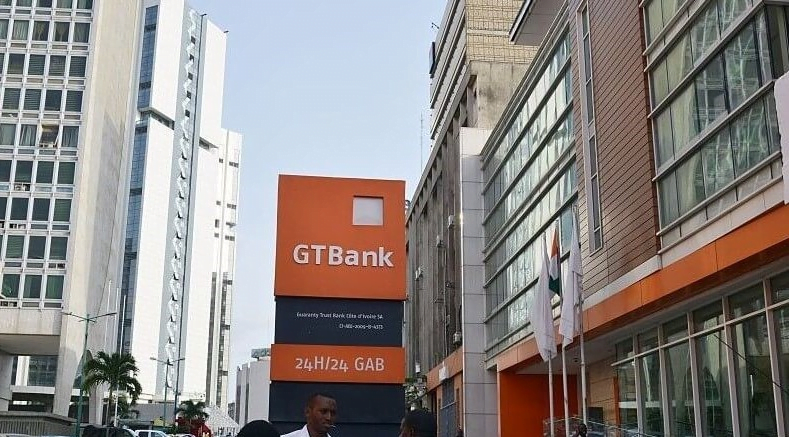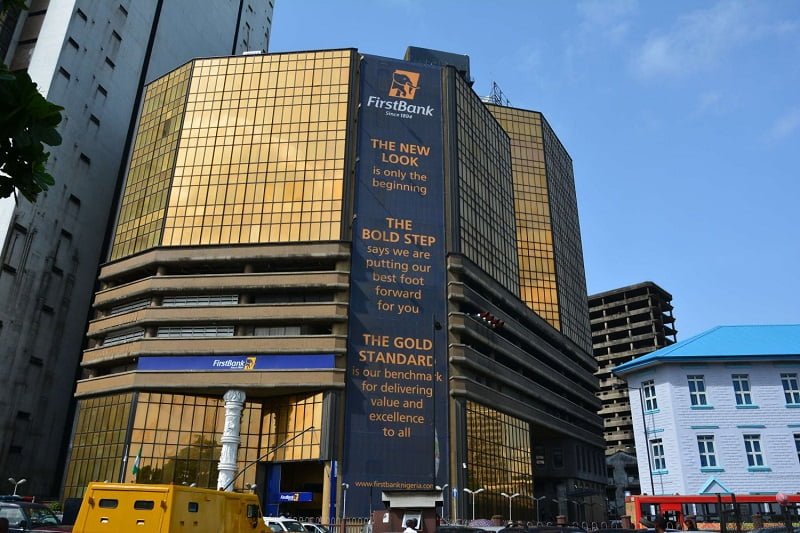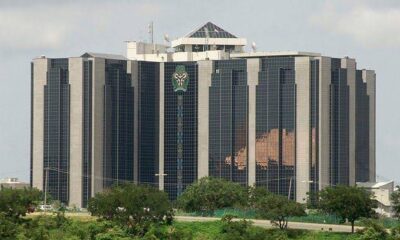Business
See The 5 Strongest Banks In Nigeria And Their Market Capital
The journey to becoming the “Strongest Banks In Nigeria” is a testament to their unwavering commitment to excellence…

- The five strongest banks in Nigeria include Zenith, GTCO, UBA, Access, and First Banks, all reaching a market capitalization of at least over N800 billion to N1 trillion each in latest data on the Nigeria Exchange Group (NGX Group).
As at January, 2024, Nigeria celebrated a significant achievement as its top five banks achieved a historic milestone by attaining a market capitalization of at least over N800 billion to N1 Trillion each on the NGX, the nation’s esteemed stock exchange.
This remarkable feat not only underscores the strength and resilience of the Nigerian banking sector but also highlights its vital role in the country’s economy.
The surge in the market witnessed on this occasion marked a momentous occasion for investors and stakeholders alike, contributing to a staggering ₦1.6 trillion gain; this unprecedented growth reflects the unwavering performance and stability demonstrated by these leading financial institutions amidst a dynamic and evolving market environment.
The attainment of such impressive market capitalization figures signifies a demonstration of confidence from investors in the growth prospects and stability of these banks.
It reflects their ability to navigate various economic challenges and capitalize on emerging opportunities, solidifying their position as key drivers of Nigeria’s financial ecosystem.
Furthermore, the significance of this achievement extends beyond finance but serves as a testament to the resilience and dynamism of the Nigerian economy as a whole. It also highlights the country’s potential as an attractive destination for investment and reinforces its position as a significant player in the global financial landscape.
Now, you might be wondering which of the banks in Nigeria could have achieved this remarkable feat. If my guess was correct, then relax and read on. This article lists the five strongest banks in Nigeria and their market capital.
Understanding Market Capitalization
Before going into the specifics, let’s establish a common ground on market capitalization. Market capitalization is one of the indices used to measure how strong a commercial bank is.
The Market Capitalization metric is pivotal in assessing a company’s overall value within the stock market.
This metric is calculated by multiplying the current share price by the total number of outstanding shares, providing investors and analysts with a comprehensive understanding of a company’s worth in the financial market.
However, while Market Capitalization offers valuable insights into a company’s standing, it is not the sole indicator of a bank’s strength and stability. Indeed, there exist various other metrics that are equally crucial in evaluating the robustness of financial institutions.
Among these are the value of a bank’s assets, which encapsulates its tangible and intangible resources, and the amount of depositors’ funds held by the institution, reflecting its liquidity and depositor’s confidence.
Additionally, factors such as a bank’s loan portfolio quality, efficiency ratios, and regulatory compliance also play significant roles in determining its overall strength and resilience in the face of market fluctuations and economic uncertainties.
Therefore, while Market Capitalization remains a fundamental metric for investors and stakeholders, it is imperative to consider a comprehensive range of indicators to understand a bank’s performance and viability within the dynamic financial landscape.
By analyzing these various metrics in conjunction with Market Capitalization, investors can enhance their decision-making abilities and mitigate risks effectively in their investment strategies.
The 5 Strongest Banks In Nigeria With Their Market Capital
While there are more than enough financial institutions in the country, the five strongest Banks in Nigeria to discuss in no hierarchy order include Zenith, GTCO, Access, UBA, and First Banks.
1. Zenith Bank: N1.11 trillion

Zenith Bank Plc is engaged in commercial banking. The bank provides banking and other financial services to corporate and individual customers.
Its services include granting loans and advances, corporate finance, and money market activities. Its divisions include:
- Corporate and Public services
- Retail Banking
- Pension Custodial services,
- Nominee-Nigeria
- Outside Nigeria Banking-Africa and Europe.
With a current share price of N35.50, Zenith Bank boasts a market capitalization of N1.11 trillion as at February 13, 2024. This impressive figure, attained by the Zenith Bank, marks a substantial leap from the N767.64 billion recorded in 2023.
2. GTCO – 1.16 trillion

Guaranty Trust Holding Company Plc (GTCO) is the parent company of Guaranty Trust Bank Nigeria. It is a multinational financial services group with its headquarter located in Victoria Island, Lagos, Nigeria.
It offers services related to payments, asset management, retail and investment banking, and pension management.
GTCO Plc was established in July 2021 following the corporate restructuring of Guaranty Trust Bank PLC (or GTBank) into a Holding Company
GTCO commands a market capitalization of N1.16 trillion, with its share price reaching N39.45 as at February 13, 2024, which makes up about 2.09 % of the Nigerian Stock Exchange equity market.
This figure reflects a massive increase compared to January 2023, when GTCO’s market capitalization was N706.34 billion.
3. Access Bank: N828 billion

Access Bank Plc is a multifaceted financial institution serving over 30 million customers worldwide via its network of over 600 branches and service centers across 12 nations.
The bank is one of the strongest banks in nigeria , which has more than 900,000 shareholders, has grown significantly in the banking sector during the past ten years and has been listed on the Nigerian Stock Exchange since 1998.
In terms of total retail clientele, Access Bank grew to become one of Africa’s biggest banks after merging with Diamond Bank in March 2019.
It has four business categories meant for its different customers.
- Corporate and Investment Banking: Provides banking services and products to institutional clients, including prominent local and international corporations.
- The Commercial Banking: This section offers financial services to the public sector, commercial institutions, and Asian enterprises, in addition to banking products and services for non-institutional clients.
- The Retail Banking Industry: This offers people private banking and other financial services and products.
- The Business Banking: This category provides small and medium-sized businesses with solutions for their needs.
Access Holdings Plc, the parent company of Access Bank, recently joined the trillion-naira club of the strongest banks in Nigeria, hitting a market capitalization of N1.055 trillion on Tuesday, January 9, 2024.
However, recent changes indicate that the current market valuation, as of February 13, 2024, has dropped to NGN 828 billion, which makes up about 1.49 % of the Nigerian Stock Exchange equity market, indicating dynamism in the Nigerian Stock Exchange market.
4. First Bank( FBN Holdings): N888 billion

First Bank of Nigeria Limited in the list of the strongest banks in nigeria is a commercial bank that operates in ten countries. Its non-operating holding company is called FBN Holdings Plc.
FBN is one of Africa’s biggest and most diverse banking and financial services companies. It offers a range of goods and services, such as Insurance, Asset Management, Merchant Banking, and Commercial Banking.
As of December 2023, FBN Holdings joined the trillion-naira league. The company’s share appreciated by N2.5 or 9.90% to settle at N29.4 at the close of stock market trading. This increased FBN holdings’ market capitalization from N95.12 billion to N1.05 trillion.
However, as a result of changes in the stock market due to numerous factors, FBN Holdings Plc currently holds a market capitalization of NGN 888 billion, which is about 1.6% of the Nigerian Stock Exchange equity market.
5. United Bank for Africa (UBA): 819 billion
United Bank for Africa (UBA), led by Tony Elumelu as the chairman, stood at an impressive market capitalization of N1.022 trillion as of January 2024, from N990bn after its shares price rose from N28.95 to N29.90, signaling an N32bn gain in one day. This astounding growth in just a year emphasizes UBA’s strategic initiatives and market adaptability.
In a statement, UBA said its N1 trillion market capitalization comes after the company’s share closed in 2023 as the highest-performing stock in the banking sector.
Commenting on the bank’s impressive performance, Chairman Tony Elumelu pointed out that this highlighted its strategic prowess and reflected its commitment to delivering unparalleled value to shareholders and stakeholders alike.
However, UBA now holds a market capitalization of 819 billion and a current share price of N 23.95, indicating a decrease in price valuation.
It is important to note that the figures obtained by these banks are subject to daily changes as the stock market increases or decreases, and as mentioned earlier, market capital does not determine a bank’s strength and stability alone.
Factors such as a bank’s loan portfolio quality, value of assets, efficiency ratios, and regulatory compliance also play key roles in determining its overall strength and resilience.
However, the Nigeria’s financial sector has witnessed a paradigm shift, with five banks emerging as the strongest players in the market. Zenith Bank, GTCO, UBA, Access Bank, and First Bank have not only crossed the trillion-naira mark but have also showcased resilience, adaptability, and strategic prowess.
The market capitalizations of these institutions are not just numbers; they represent the collective strength and stability of Nigeria’s banking industry, and it is evident that these banks stand as pillars of economic growth.
The journey to becoming the “Strongest Banks In Nigeria” is a testament to their unwavering commitment to excellence and vital role in shaping the nation’s financial future.
























You must be logged in to post a comment Login